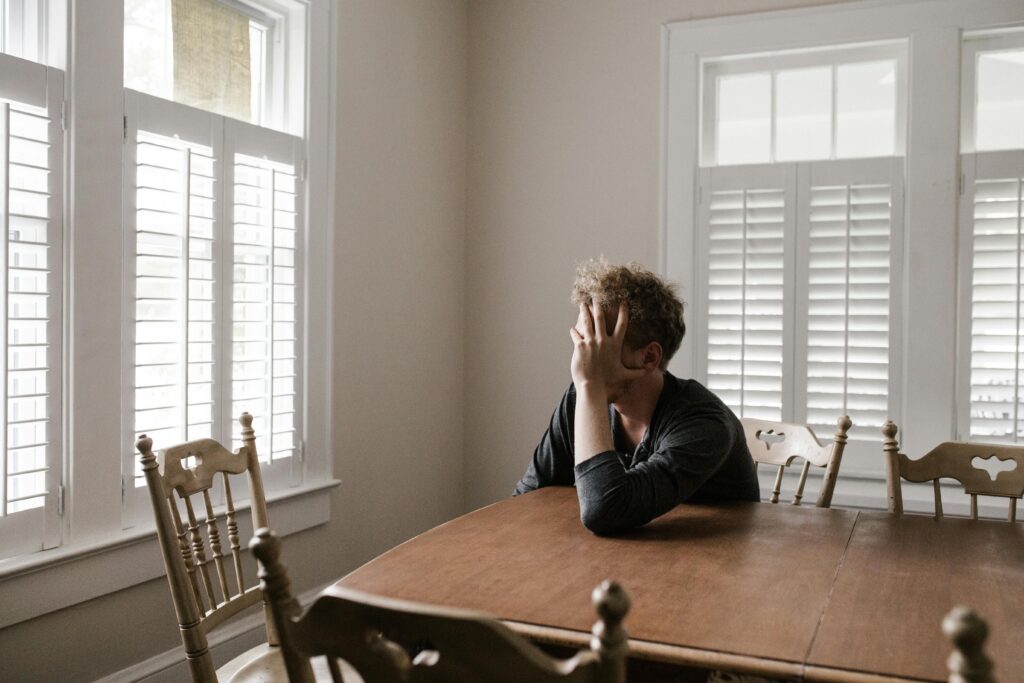What can alcohol do to you mentally? Many people drink to relax or socialise, but alcohol’s effects go far beyond the occasional buzz. While it may seem harmless at first, alcohol can have a significant impact on your mental health. From mood swings to long-term mental health conditions, the effects can be far-reaching and, at times, deeply harmful.
Alcohol interacts with the brain, altering its chemistry and how it processes emotions and thoughts. Short-term effects like reduced inhibitions and temporary euphoria may feel enjoyable, but they often come with a downside. These fleeting moments of relief can be followed by feelings of sadness, anxiety, or irritability, creating a rollercoaster of emotions.
For those who drink regularly or heavily, the consequences can be even more severe. Over time, alcohol can lead to problems such as memory loss, increased anxiety, and even conditions like depression or alcohol-induced psychosis. These effects are not always easy to recognise, especially when drinking has become a regular part of life.
This article explores the mental health effects of alcohol, answering questions many people have about how drinking impacts their emotional and psychological well-being. We’ll look at how alcohol affects the brain, the mental health issues it can contribute to, and how to recognise the warning signs of harm. By understanding these effects, you can make informed decisions about alcohol and take steps to protect your mental health.
How Alcohol Affects The Brain And Mental Health
Alcohol has a powerful impact on the brain, influencing mood, behaviour, and mental health in both the short and long term. Understanding how alcohol affects the brain can shed light on its profound influence on mental well-being.
Short-Term Effects on the Brain
When you drink alcohol, it quickly enters your bloodstream and reaches the brain, altering how your brain communicates. It slows down activity in the central nervous system, which is why alcohol is classified as a depressant. This causes the relaxed or euphoric feeling often associated with drinking. However, these effects are temporary and often followed by a downturn in mood as the brain tries to restore balance.
Alcohol also increases the release of dopamine, the chemical responsible for feelings of pleasure. While this creates a sense of happiness or relief, it’s short-lived. Once the alcohol wears off, dopamine levels drop, leading to irritability or sadness.
Long-Term Effects on the Brain
Regular or excessive drinking disrupts the brain’s ability to regulate emotions and thought processes. Over time, it can lead to shrinkage of brain tissue, particularly in areas responsible for memory and decision-making. This contributes to long-term cognitive decline, memory issues, and difficulties in focusing or problem-solving.
Additionally, alcohol impacts the amygdala, the part of the brain that manages stress and fear. Frequent drinking reduces the brain’s ability to handle stress naturally, leading to heightened anxiety levels and dependence on alcohol as a coping mechanism.
Mental Health Implications
Prolonged alcohol use is strongly linked to mental health conditions such as anxiety, depression, and alcohol-induced psychosis. For many, alcohol becomes both the cause and a perceived solution to these issues, creating a vicious cycle. For example, someone may drink to relieve stress, only to find that their anxiety worsens when they’re sober.
Alcohol’s effects on the brain and mental health are significant. While it may seem like a quick fix for stress or emotional struggles, alcohol can cause more harm than good, making it crucial to understand its impact and make healthier choices.

What Can Alcohol Do To You Mentally? The Emotional And Psychological Effects
When asking, “What alcohol can do to you mentally?”, it’s essential to recognise the wide-ranging emotional and psychological impacts alcohol can have. While some effects are immediate, others develop over time, often unnoticed until they severely affect your mental health.
Emotional Turmoil and Mood Swings: Alcohol is a mood-altering substance. It temporarily lifts your mood by releasing dopamine, creating feelings of happiness and relaxation. However, this effect is fleeting. As the alcohol leaves your system, your brain’s chemical balance shifts, often leading to irritability, sadness, or frustration. Regular drinking can exacerbate these mood swings, making it difficult to maintain emotional stability.
Increased Anxiety and Stress: Although some people use alcohol to relax, frequent drinking can have the opposite effect. Alcohol disrupts the brain’s ability to manage stress effectively, and regular use can heighten anxiety levels when sober. This creates a harmful cycle: you drink to manage stress, but the drinking ultimately worsens it. Over time, alcohol can make everyday challenges feel overwhelming, leading to persistent feelings of unease.
Depression and Hopelessness: Long-term alcohol use is closely linked to depression. As alcohol interferes with neurotransmitters that regulate mood, it can lead to prolonged periods of sadness and a sense of hopelessness. For some, this can evolve into clinical depression, making it harder to quit drinking and address the root causes of their emotional struggles.
Memory and Cognitive Decline: Alcohol affects the hippocampus, the part of the brain responsible for forming memories. Short-term effects include blackouts, where you cannot recall events that occurred while drinking. Over time, heavy alcohol use can lead to more severe cognitive issues, such as difficulty concentrating, memory loss, and reduced decision-making abilities.
Dependence and Psychological Addiction: Mentally, alcohol can create a dependency where your brain begins to rely on it for emotional regulation. This reliance can make quitting feel impossible, as the brain has adapted to associate alcohol with relief from stress or sadness.
Alcohol’s mental effects go far beyond the momentary relaxation it might provide. Its ability to disrupt emotions, heighten anxiety, and impair cognitive function underscores the need to be mindful of your drinking habits. Making healthier choices can protect your mental health in the long run.
Recognising The Warning Signs: When Alcohol Is Affecting Your Mental Health
It’s not always easy to see the connection between alcohol and mental health, especially when drinking is a regular part of life. However, there are clear warning signs that alcohol might be taking a toll on your emotional and psychological well-being. Recognising these signs is an important step toward making healthier choices.
Changes in Mood: One of the first indicators is frequent mood swings. You may find yourself feeling happy and relaxed while drinking, only to experience irritability, sadness, or even anger afterward. These shifts in mood can strain relationships and make it difficult to maintain emotional balance in your daily life.
Increased Anxiety or Restlessness: If you feel more anxious or stressed when sober, alcohol could be a contributing factor. While it might provide temporary relief, drinking regularly disrupts your brain’s ability to manage stress naturally. Over time, this can lead to heightened feelings of unease and difficulty coping with everyday challenges.
Difficulty Coping Without Alcohol: Relying on alcohol to manage emotions or social situations is a significant warning sign. If you find it hard to relax, sleep, or socialise without a drink, this dependency could signal a deeper issue that needs to be addressed.
Memory Problems or Blackouts: Struggling to recall events after drinking, or experiencing complete blackouts, can indicate that alcohol is affecting your brain’s ability to form and retain memories. These episodes can become more frequent with heavy or long-term drinking.
Neglecting Responsibilities: If drinking begins to interfere with your work, relationships, or personal responsibilities, it’s a clear sign that alcohol is impacting your mental and emotional health. This can include missing deadlines, avoiding social interactions, or neglecting self-care.
Feeling Trapped or Hopeless: Many people feel stuck in a cycle where drinking seems like the only way to cope. If you’re experiencing feelings of hopelessness or despair about your situation, it’s time to seek support.
Recognising these warning signs early can help you take control of your mental health. Addressing the issue doesn’t have to mean facing it alone — professional support and personalised strategies can help you break the cycle and restore balance to your life.

Steps To Protect Your Mental Health From Alcohol’s Impact
Protecting your mental health from the effects of alcohol requires deliberate action and consistent effort. Whether you’re aiming to cut back, quit drinking entirely, or simply make healthier choices, these steps can help you minimise alcohol’s impact on your mental well-being.
1. Set Clear Boundaries: One of the simplest ways to reduce alcohol’s effects on your mental health is to set clear limits on how much and how often you drink. For example, you might decide to only drink on special occasions or limit yourself to one or two drinks per week. Establishing these boundaries helps you maintain control and avoid overindulgence.
2. Replace Drinking with Positive Activities: When alcohol becomes a regular part of your routine, it’s important to find healthier alternatives. Engage in activities that bring you joy and relaxation, such as exercising, pursuing hobbies, or spending time with friends and family. These activities not only reduce the urge to drink but also boost your mood and overall well-being.
3. Address Underlying Triggers: Often, alcohol use is tied to underlying emotional triggers such as stress, anxiety, or boredom. Identify what prompts you to drink and explore healthier coping strategies. For instance, if stress is a trigger, consider mindfulness practices like meditation or deep-breathing exercises to calm your mind.
4. Seek Professional Support: If you find it difficult to reduce or quit drinking on your own, seeking professional help is a crucial step. Counsellors, therapists, and support groups can provide guidance, encouragement, and tools tailored to your needs. They can also help address the emotional causes of your drinking habits.
5. Build a Support Network: Surround yourself with supportive people who encourage your decision to protect your mental health. Share your goals with trusted friends or family members who can hold you accountable and celebrate your progress.
6. Educate Yourself About Alcohol’s Effects: Understanding the impact of alcohol on your brain and mental health can be a powerful motivator to make changes. The more you know, the easier it becomes to recognise unhealthy patterns and take action to protect yourself.
Incorporating these steps into your life can help you safeguard your mental health, break free from harmful habits, and move towards a healthier, more balanced lifestyle.
What Can Alcohol Do To You?: Protecting Your Mind From Alcohol’s Grip
Understanding what alcohol can do to you mentally is the first step in taking control of your mental health. While alcohol might seem like a way to unwind or escape, its effects on your brain and emotional well-being can be far-reaching and damaging. The good news is that change is always possible, and with the right steps, you can protect your mind and build a healthier future.
By recognising the warning signs of alcohol’s impact, setting clear boundaries, and replacing drinking with positive activities, you can begin to minimise the harm caused by alcohol. Seeking professional support and building a strong network of encouragement are essential for maintaining these changes and ensuring your success in protecting your mental health.
At The Freedom Solution, we’re here to help you every step of the way and make you understand deeply the question, “What can alcohol do to you?”. Whether you’re looking to cut back, quit entirely, or simply gain a better understanding of how alcohol affects your mental health, our personalised support programmes are designed to meet your unique needs. We believe in empowering individuals to take charge of their well-being and create positive, lasting changes.
If you’re ready to take the next step in protecting your mental health, reach out to The Freedom Solution today. Contact us or visit our website to learn more about our services and how we can help you live a healthier, happier life free from alcohol’s hold.







Leave A Comment